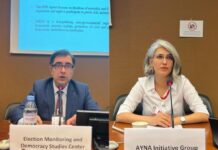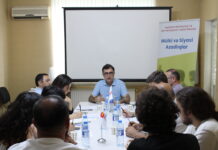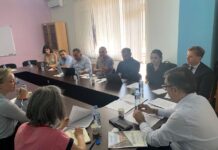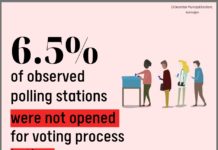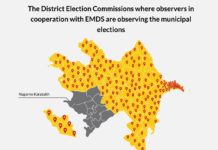PRESS-RELEASE, August 28, 2017
The Working Group (WG) on Unified List of Political Prisoners in Azerbaijan presents updated Unified List of Political Prisoners in Azerbaijan.
The current updated list includes 160 names. Based on documents obtained, court observations and interviews, The Woking Group has already recognized 158 of them as people arrested with political motivation – as political prisoners. Two cases remain Under Monitoring, as all the details of their cases have not been available for studying and informed decision.
158 confirmed cases of political prisoners include 10 journalists and bloggers, 2 poets and writers, one human rights defender, 11 political and civic activists, 97 religious activists and three life prisoners. Nineteen political prisoners are those who were arrested during social protests. Two former government officials are also recognized as political prisoners. Besides these groups, the List includes three cases of political hostages – those, arrested for solely being family member or close relative of the government critics. Ten political prisoners – Said Dadashbeyli and those arrested within the same case are included into the same group.
Follow link to see full report “Unified List of Political Prisoners in Azerbaijan”:
The Working Group continues it’s work on updating the list and monitoring of the remaining and new cases.
International Community should react to ongoing policy of repression
Unfortunately the revolving door of the Azerbaijani political prison does not stop. The Working Group regretfully states that there are more and more cases of political imprisonments, and the government does not step abandon its policy of repression.
Along with presenting updated numbers and cases to the attention of international community the Working Group calls upon it to increase its efforts for more effective solution
The Working Group calls upon the United Nations, the Council of Europe, the OSCE, the European Union, the World Bank, and other international political and economic organizations to stop ignoring the ongoing oppression of civil society in Azerbaijan. We demand that international organizations do not use the human rights and democracy agenda as a bargaining chip in their negotiations with the Azerbaijani government on other matters.
The Working Group calls for appropriate actions from the international community in response to the Azerbaijani government’s unwillingness to rescind from its repressive policies against freedom of speech and human rights.
The Council of Europe Parliamentary Assembly and Committee of Ministers must stop delaying discussions on the matter and to start acting on the issue of political prisoners, as their negligence encourages the repressive regime in Azerbaijan to further shrink the space for civil society.
We call upon the United States and European Union countries to introduce targeted sanctions against perpetrators of human rights abuses in Azerbaijan.
What is the Unified List of Political Prisoners in Azerbaijan
The goal of preparing the Unified List of Political Prisoners is to define the common position on people whose arrests were politically motivated, consolidate the efforts for their release in the country and internationally.
The Updated List is a result of the Research based on information and documents obtained by the WG members, or submitted to the Group, court observations and trustworthy media reports.
Decision on recognition as political prisoner is based on criterias defined in the October 3, 2012 Resolution #1900 of the Parliamentary Assembly of the Council of Europe:
“A person deprived of his or her personal liberty is to be regarded as a ‘political prisoner’:
- if the detention has been imposed in violation of one of the fundamental guarantees set out in the European Convention on Human Rights and its Protocols (ECHR), in particular freedom of thought, conscience and religion, freedom of expression and information, freedom of assembly and association;
- if the detention has been imposed for purely political reasons without connection to any offence;
- if, for political motives, the length of the detention or its conditions are clearly out of proportion to the offence the person has been found guilty of or is suspected of;
- if, for political motives, he or she is detained in a discriminatory manner as compared to other persons; or,
- if the detention is the result of proceedings which were clearly unfair and this appears to be connected with political motives of the authorities”.”
The decision on recognition of the case as politically motivated followed long discussions on the matters and documents. When the political motivation was obviously seen in the court decisions on detention, statements of the law-enforcement agencies and the country leadership, The Working Group have regarded the case as political prisoner, without waiting for a trial hearing on the case.
The Working Group extends it’s gratitude to the lawyers, cooperating with the Group, who supported the work with access to documents and legal support to prisoners, who lacked independent legal representation in the investigation.
The Working Group regretfully states, that the real number of political prisoners in Azerbaijan is much higher than could be reflected in the document as many cases are under-reported due to the fear of further repression. Another problem is lack of legal education, defense lawyers, who agree to undertake political cases and lack of defense mechanisms, especially in rural regions of Azerbaijan.
Should you have any questions regarding the list, you are welcome to contact coordinators of The List Rasul Jafarov and Intigam Aliyev (resul.j@gmail.com, intigamaliyev@yahoo.com).
The Working Group on Unified List Of Political Prisoners






